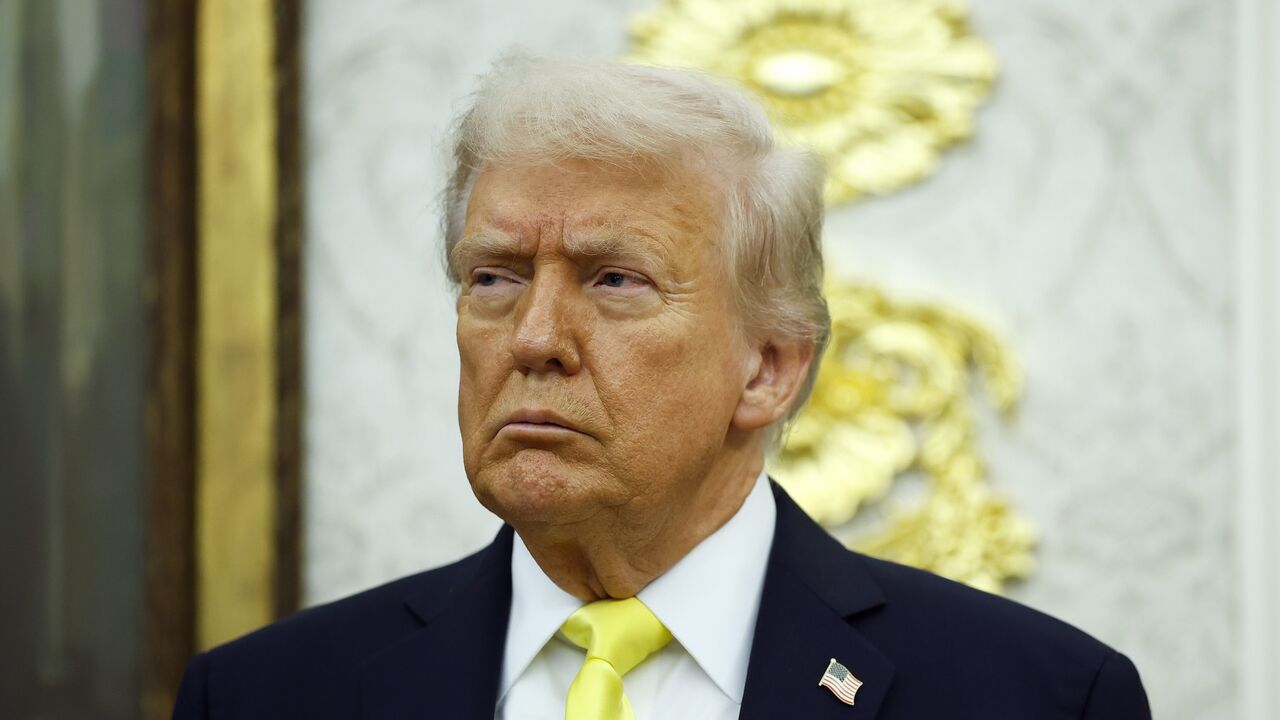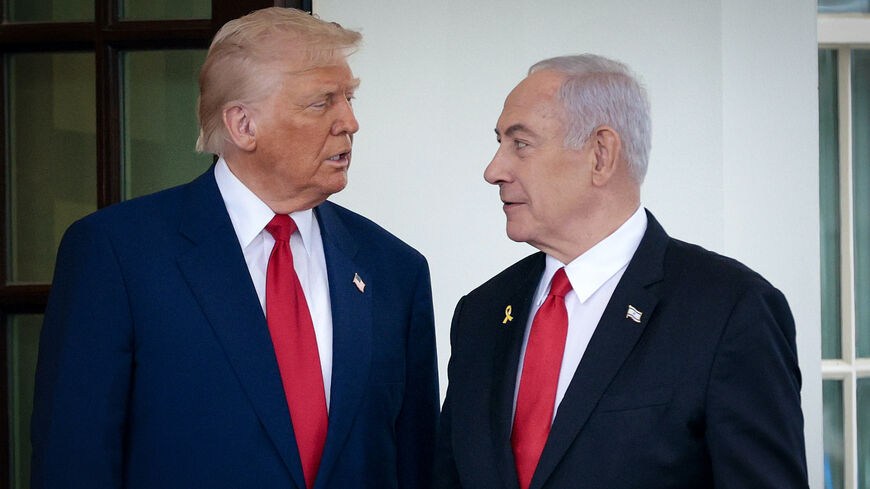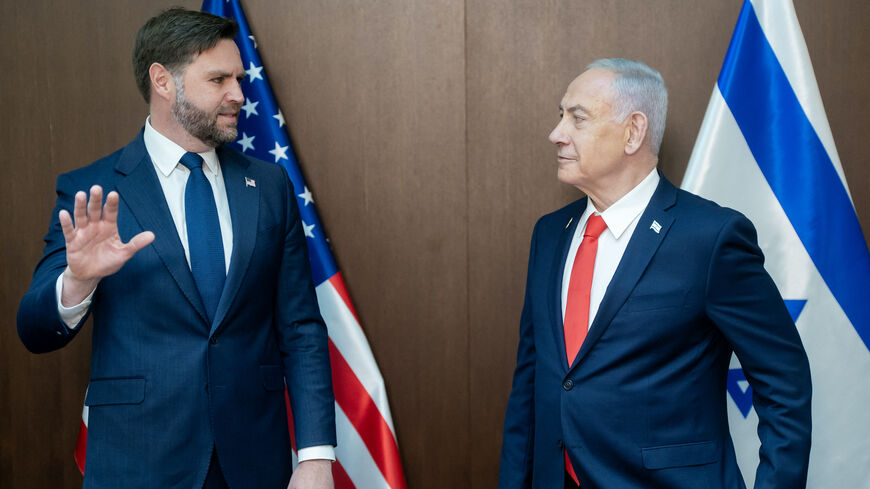Trump to Israel: West Bank annexation could end US support
"It won't happen," President Donald Trump said of annexation.

WASHINGTON — President Donald Trump has publicly warned Israel that proceeding with West Bank annexation will cost it US support.
“It won't happen,” Trump said of annexation in an Oct. 15 interview with Time magazine published Thursday.
"It won’t happen because I gave my word to the Arab countries. And you can't do that now. We've had great Arab support. It won't happen because I gave my word to the Arab countries. It will not happen. Israel would lose all of its support from the United States if that happened," Trump said.
Israeli Prime Minister Benjamin Netanyahu has repeatedly rejected Palestinian statehood. He and his right-wing allies reportedly weighed options for annexing at least part of the West Bank, where some 3 million Palestinians live, in response to the wave of Western governments recognizing Palestinian statehood at the United Nations General Assembly last month.
Trump privately assured Arab leaders at the UN summit that he would not allow Israel to annex the territory. The United Arab Emirates, which normalized relations with Israel in 2020 in a Trump-brokered deal, has said annexation would be a “red line.”
On Wednesday, the Israeli Knesset gave preliminary approval to a bill that applies Israeli law to the West Bank and backed a separate proposal to annex a major settlement city. The vote came as US Vice President JD Vance was in the country meeting with Israeli leaders to shore up the Gaza Strip ceasefire.
"If it was a political stunt, it was a stupid one, and I take some insult to it,” Vance said as he wrapped up his Israel trip, adding that “the policy of the Trump administration is that the West Bank will not be annexed by Israel.”
Netanyahu opposed the annexation bill — fearing it would antagonize the Trump administration — with all but one of his Likud party lawmakers boycotting. The reading narrowly passed in a 25-24 preliminary vote, but it’s unclear whether the bill would secure a majority in the full 120-seat Knesset.
At a press conference in Jerusalem Thursday, Israeli Foreign Minister Gideon Saar described the vote as a “political move of the opposition to try to embarrass the government” during Vance’s visit.
The timing was reminiscent of then-Vice President Joe Biden’s visit to Israel in March 2010. Less than 24 hours after Biden’s arrival, Netanyahu’s right-wing interior minister announced plans for 1,600 new Jewish housing units in contested east Jerusalem, a move that did not appear to have the premier's backing. While in 2010 the planned settlement expansion was announced by a government minister, this time it was opposition parties — analysts say both intended to embarrass Netanyahu.
“The Knesset vote may be symbolic, but the expulsion of Palestinian communities and the rapid expansion of settlements is very much not symbolic,” said Matt Duss, executive vice president at the Center for International Policy.
In recent years, the Netanyahu government has rapidly accelerated West Bank settlement expansion, a move most countries deem illegal and Palestinians say undermines their quest for statehood. Nearly 500,000 settlers live in the West Bank, territory Israel captured in the 1967 war.
Defying international pressure, Netanyahu last month gave his approval to the controversial E1 settlement project. The building of more than 3,400 new settler units in the long-stalled settlement would effectively divide the West Bank in half, further diminishing Palestinian statehood aspirations.
Secretary of State Marco Rubio, who is set to meet with Netanyahu Thursday in Jerusalem, described the recent annexation push as “potentially threatening” for Trump’s peace plan for Gaza, which began last week with the hostage-for-prisoner exchange and the pullback of Israeli troops in the Palestinian enclave.
“They’re a democracy. They’re going to have their votes. People are going to take these positions. But at this time, it’s something that especially we don’t — we think it might be counterproductive,” Rubio told reporters at Joint Base Andrews in Maryland before departing for Israel.
Trump’s son-in-law and adviser Jared Kushner and his Middle East envoy, Steve Witkoff, also traveled to Israel this week to lend support to the US-brokered truce that both Hamas and Israel have accused each other of violating. Witkoff and Kushner are working to advance the ceasefire’s next, more difficult phase, which includes disarming Hamas, establishing a transitional government and the withdrawal of the Israeli military from the half of Gaza it still controls.
The Trump administration’s public rejection of annexation comes as it seeks to expand the Abraham Accords to include Saudi Arabia. Saudi Crown Prince Mohammed bin Salman, who is expected to visit Washington next month, has conditioned normalization on the Gaza war’s end as well as steps toward a Palestinian state.
Trump told Time magazine that a deal to normalize relations between Saudi Arabia and Israel could be reached by the end of the year, describing an agreement as “very close.”




